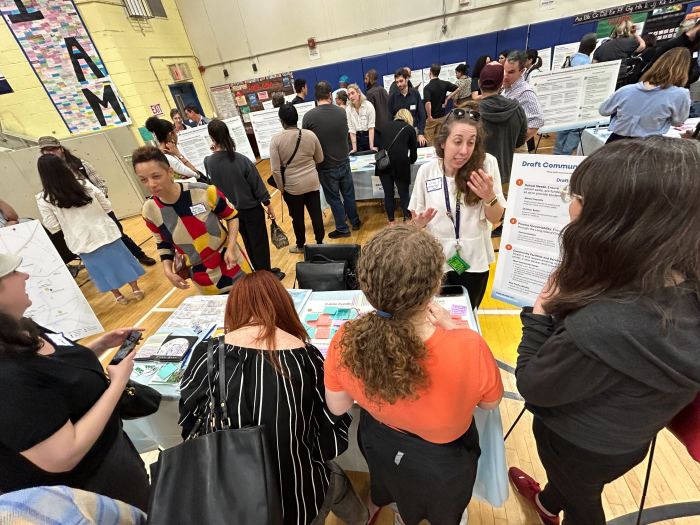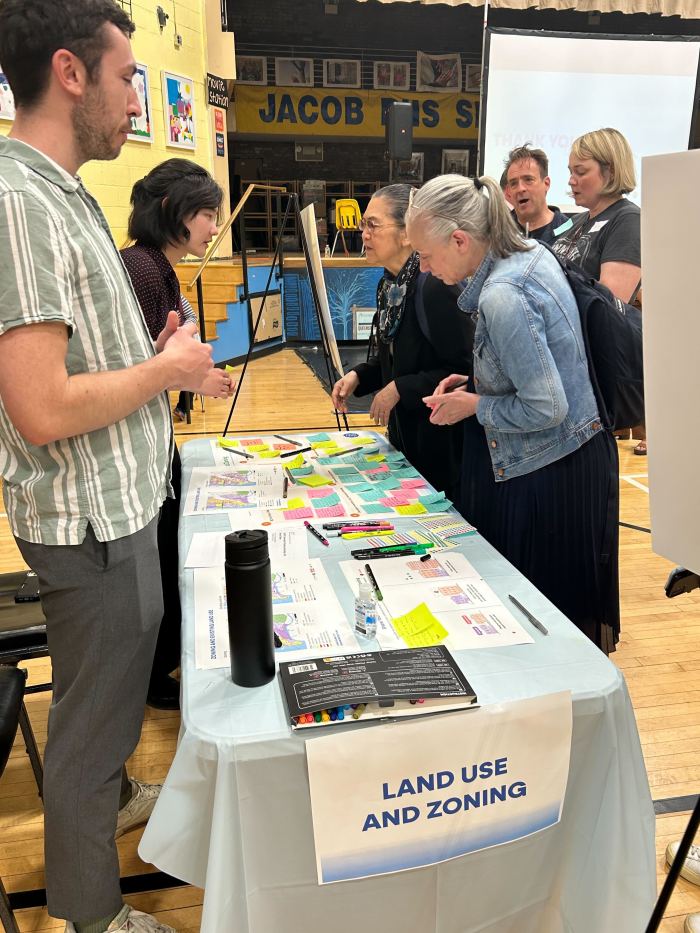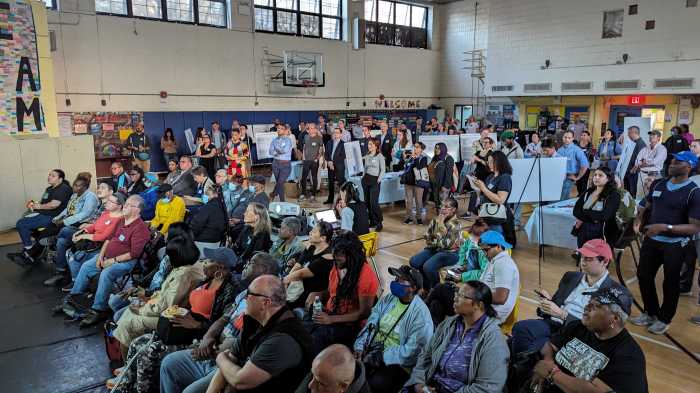
Photo provided by the office of Council Member Julie Won
Apr. 18, 2024 By Queens Post News Team
Over 135 Long Island City residents attended a town hall hosted by Council Member Julie Won on Monday evening to share recommendations about the Long Island City Neighborhood Plan, “One LIC,” which aims to attract investment to the neighborhood.
The town hall, the second to take place during the community planning process for the neighborhood plan, took place on Monday evening at the Jacob Riis Neighborhood Settlement, 10-25 41st Ave.
Council Member Won hosted the town hall along with the Department of City Planning and WXY Studios.
Representatives from numerous city agencies were in attendance, including the Economic Development Corporation, Queens Public Library, NYC Housing Authority, the School Construction Authority and several city departments.
During Monday’s town hall, attendees heard details of the progress made in the One LIC planning process to date and participated in workshops to draft community recommendations for the project.

Photo provided by the office of Council Member Julie Won
One LIC aims to protect existing affordable housing in Long Island City and generate significant new housing with an emphasis on affordable housing.
The neighborhood plan additionally aims to invest in public parks and create more open spaces in Long Island. It also calls for improved public transport, increased safety for pedestrians and cyclists, and improved logistics for deliveries, loading zones, and truck access.
The neighborhood plan encompasses the area from Gantry Plaza State Park on the East River to Queensbridge Houses and the Long Island City Industrial Business Zone in the north. It also stretches east to Court Square and 23rd Street and recommends investments and programming for all of Long Island City, including Queensbridge.
One LIC additionally calls for a more sustainable and resilient Long Island City, with an emphasis on addressing existing challenges such as climate change, population growth, and planned development.
It also aims to support local businesses, facilitate job growth, and improve access to a diverse range of jobs and training programs.
Finally, the neighborhood plan calls for increased investment in neighborhood services, education and community programs.

Photo provided by the office of Council Member Julie Won
Won said Monday’s town hall allowed planners to “synthesize” community recommendations from previous town halls and focus meetings, including calls from residents for investment in Queensbridge Housing and improvements to the neighborhood’s sewage system.
She said planners have also included local calls for a middle school on Vernon Boulevard and said ideas put forward by members of the community will continue to be prioritized throughout the planning process.
“As we move forward in this community-led planning process, we will continue prioritizing investments in our Black and brown communities and bridging the gap between our lower-income neighbors and communities who have historically received more investments near the waterfront,” Won said.
Anatole Ashraf, Chair of Queens Community Board 2, said One LIC addresses a “critical” need for housing in Long Island City in a manner inclusive of community voices.
“Queens Community Board 2 has put affordable housing at the top of our list of priorities. Any plan must approach affordability so that the vast majority of the Queens CB2 district can actually afford to rent and stay in these units over time, and that’s what we’ll continue to look out and advocate for,” Ashraf said.

Photo provided by the office of Council Member Julie Won
Dan Garodnick, Director of the Department of City Planning, said the community planning process will allow a diverse range of voices to be heard.
“Together, we can help deliver housing, jobs, transportation and resilience improvements, and more to this vibrant neighborhood,” Garodnick said.
The planning process for One LIC kicked off with a town hall in November last year, followed by a series of focus area meetings between December and February.
Won, WXY Studios, and the Department of City Planning will hold a new round of focus area meetings starting next month, followed by a third town hall meeting in June to release draft strategies and solicit further community feedback.
The neighborhood plan will culminate with recommendations for zoning changes, infrastructure investments, and other recommendations based on information gathered during the community planning process.






